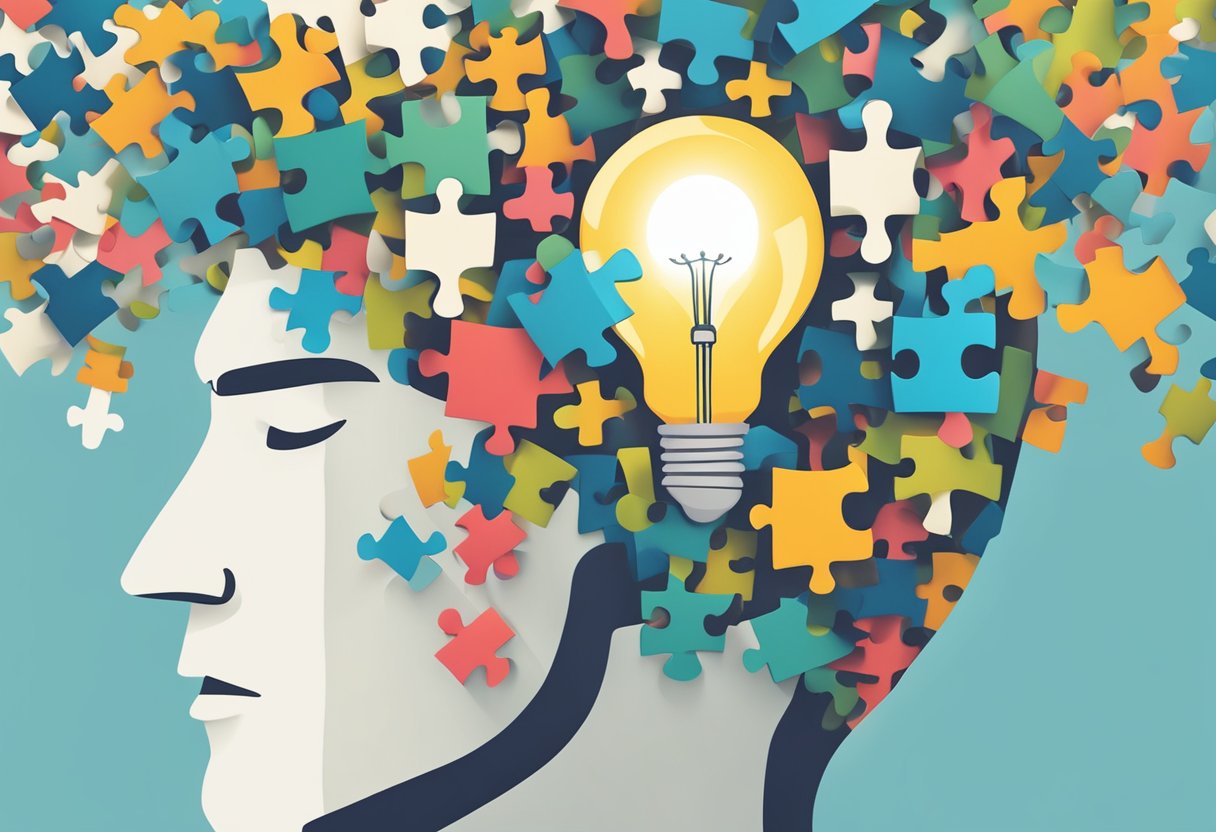Emotional intelligence is a crucial component in the realm of strategic thinking. It encompasses the ability to understand and manage one’s emotions, as well as the emotions of others. These skills are essential for effective leadership, as they contribute to better decision-making, problem-solving, and the ability to navigate the complexities of organizational dynamics. A higher emotional quotient (EQ) enables leaders to grasp the subtle emotional undercurrents of their teams and the impact of their decisions on people, which is critical when formulating long-term strategies.


The integration of emotional intelligence in strategic planning allows for a more thorough analysis of situations, taking into account the human element that drives business operations. When leaders exercise emotional intelligence, it enhances their capacity to handle stress, adapt to change, and generate a positive work environment. This, in turn, leads to a more resilient organization with a strategic edge in its sector. By mastering skills such as empathy and self-regulation, leaders can forge stronger alliances, motivate teams more effectively, and foster a culture of trust and innovation needed for strategic success.
Key Takeaways
- Emotional intelligence is integral for effective strategic thinking and leadership.
- High EQ in leaders leads to better decision-making and problem-solving.
- Emotional intelligence fosters a positive work environment and organizational resilience.
Foundations of Emotional Intelligence
Emotional intelligence (EI) serves as a critical framework for strategic thinking, enabling individuals to understand and manage emotions effectively. By developing the core components of EI, individuals enhance their ability to navigate social complexities and make informed decisions.
Understanding Self-Awareness
Self-awareness is the recognition of one’s emotions, strengths, weaknesses, values, and drives. Individuals who recognize their emotions can more accurately assess their impact on thinking and decision-making. Self-awareness is foundational in identifying how emotions influence thoughts and the strategies required to manage them.
Developing Self-Regulation
Self-regulation involves the ability to control or redirect disruptive emotions and impulses, thus demonstrating thoughtfulness and integrity. Individuals adept at self-regulation tend to be flexible and excel in managing change. Practicing self-regulation enhances strategic thinking by allowing for more deliberate decision-making processes.
Cultivating Motivation
Motivation is the passion to work for reasons beyond money or status, driving one’s pursuit of goals with energy and persistence. It includes the drive for achievement, commitment to one’s work, and the readiness to act on opportunities. Individuals with high motivation remain optimistic even in the face of failure.
Building Social Awareness
Social awareness reflects the ability to understand the emotions, needs, and concerns of others, often by listening actively and picking up on emotional cues. This component includes the key attribute of empathy, allowing for an understanding of diverse perspectives and fostering more effective collaboration.
Enhancing Social Skills
Underpinning the management of relationships, enhancing social skills, such as giving and receiving feedback, is critical for effective leadership and teamwork. Proficiency in managing relationships and building networks is essential for successful negotiation, conflict management, and the ability to inspire and influence others.
By integrating these competencies, individuals and organizations can strengthen their strategic thinking capabilities to navigate complex environments successfully.
Strategic Thinking and Emotional Intelligence
Successful strategy execution relies on the careful alignment of rational planning and the sensitivity of emotional intelligence. This intricate balance enables leaders to navigate complex challenges with awareness and foresight.
Defining Strategic Thinking Skills
Strategic thinking involves the ability to generate insights about the competitive environment and future market trends, align these insights with the organizational mission, and create a clear path to achieve long-term objectives. Leaders who demonstrate strategic thinking are often adept at problem-solving, decision-making, and prioritizing objectives that drive the company’s success.
The Role of Emotional Intelligence in Strategy
Emotional intelligence (EI) is a critical facilitator of effective strategic thinking. It empowers individuals to read the emotional undercurrents of a business environment, enhancing their ability to communicate, manage change, and persuade stakeholders. EI particularly strengthens strategic thinking by providing the tools to understand and respond to the emotional responses of employees, competitors, and customers.
Balancing Short-term and Long-term Objectives
A key aspect of strategic thinking is the balance between short-term demands and long-term ambitions. Emotional intelligence fosters the resilience and flexibility needed to adjust strategies as circumstances evolve without losing sight of the ultimate goals. It aids leaders in managing immediate crises with composure while continuing to pave the way for future growth and stability.
Emotional Intelligence in Leadership
Emotional intelligence (EI) serves as a pivotal skill set in leadership, enabling individuals to navigate complex interpersonal dynamics and foster strategic thinking. Mastery of EI drives effective leadership development, coaching, and cultivation of strong organizational relationships.
Leadership Development Through Emotional Intelligence
Leadership development is significantly enhanced when individuals cultivate emotional intelligence. Leaders with high EI have the self-awareness and self-regulation needed to handle the pressures of decision-making and spearhead organizational change. They are better equipped to assess their performance critically, as well as to inspire and motivate their teams to embody the vision and goals of the organization.
Coaching for Strategic Leadership
Coaching that focuses on emotional intelligence primes leaders to adopt a strategic perspective. Leadership coaches stress the importance of aligning EI with business strategy to navigate the nuances of team dynamics. This alignment ensures that leaders can communicate effectively, resolve conflicts, and drive their teams towards common objectives with greater cohesion and clarity.
Empathy and Building Strong Relationships
Empathy is a cornerstone of emotional intelligence, playing a crucial role in building strong relationships within the workplace. Leaders who exhibit empathy are more adept at understanding the needs and viewpoints of their colleagues and stakeholders, resulting in trust-based relationships. Such leaders promote a collaborative environment, encouraging open communication and a shared commitment to organizational success.
By incorporating these facets of emotional intelligence into leadership, businesses are more likely to thrive in today’s dynamic and often challenging corporate landscapes.
Practical Application in Organizational Contexts
Emotional intelligence serves as a pivotal tool in enhancing strategic thinking within organizations by directly influencing decision-making, learning, and collaboration efforts.
Incorporating Emotional Intelligence into Decision-Making
Within organizations, leaders who integrate emotional intelligence into decision-making foster a work environment conducive to strategic thinking. They perceive and consider the emotional implications of their choices, which leads to more informed and mindful decisions. For instance, understanding team dynamics can foresee the impact of strategic decisions on morale and productivity, leading to adjustments that align with both organizational goals and employee well-being.
Feedback Mechanisms and Learning
Organizations that excel in strategic thinking implement feedback mechanisms that encourage learning from emotional cues. This learning cultivates an atmosphere where employees are comfortable expressing constructive criticism and leaders are adept at receiving it without bias. Through such exchanges, organizations refine processes, improve communication, and connect the workforce towards continuous improvement.
Promoting Collaboration and Support
Effective collaboration is the lifeblood of any organization seeking to enhance its strategic capacity. Emotional intelligence paves the way for stronger interpersonal relationships and a supportive culture. Leaders with high emotional intelligence are adept at recognizing the emotional states of their teams, fostering trust and opening lines of communication that are essential for successful collaboration. They support their teams in facing challenges and connect diverse groups to work cohesively towards common strategic objectives.
Communication and Interpersonal Dynamics
Emotional intelligence is pivotal in enhancing communication efficacy and managing the complex dynamics of interpersonal relationships. This section examines how emotional intelligence enriches communication and interpersonal interactions within strategic thinking contexts.
Improving Communication through Emotional Intelligence
Understanding and managing emotions significantly aids leaders and team members in expressing their thoughts and ideas more clearly. Emotional intelligence provides the tools to assess the emotional climate of a conversation and adjust the communication style accordingly. For example, recognizing non-verbal cues can help a speaker tailor their message in a way that resonates with their audience, enhancing the effectiveness of communication within teams.
Active Listening and Reflective Dialogue
Active listening is a critical component of emotional intelligence that involves fully concentrating, understanding, responding, and then remembering what is being said. Reflective dialogue goes hand-in-hand with active listening; it involves reflecting back what has been heard to confirm understanding and demonstrate empathy. Such practices not only support the elicitation of more information but also build a foundation for trusting relationships, ensuring that all parties feel heard and understood.
Interpersonal Skills and Conflict Resolution
Interpersonal skills revolve around the ability to interact positively and work effectively with others. Conflict resolution benefits greatly from these skills. Emotionally intelligent individuals use strategic self-awareness and empathy to navigate conflicts, seeking resolutions that acknowledge and address the needs and concerns of all parties involved. Their ability to regulate emotions contributes to a calm, focused negotiation, leading to successful and harmonious outcomes as they align team or organizational goals.
Self-Management and Personal Growth
In the realm of strategic thinking, self-management and personal growth are pivotal. They enable an individual to navigate complex situations with balance and poise while fostering consistent advancement in their career.
Harnessing Self-Assessment and Journaling
Through self-assessment, individuals gain insights into their strengths and areas for improvement. Journaling serves as a tool to chronicle experiences and reflect on them, promoting growth and balance in personal and professional life.
Developing Flexibility and Consistency
One’s ability to remain flexible in the face of adversity correlates with their proficiency in self-management. Simultaneously, maintaining consistency in one’s actions ensures steady progress towards personal goals and enhances strategic decision-making capabilities.
Advancing Career through Initiative
Personal growth is driven by taking initiative. Those who seek out promotion opportunities and willingly shoulder additional responsibilities demonstrate their potential for leadership and strategic acumen.
Measuring and Expanding Emotional Intelligence
Understanding and enhancing emotional intelligence (EI) is crucial for strategic thinking. Accurately gauging one’s EI can inform strategies for growth and skills advancement, while also illuminating areas that may otherwise hinder personal and professional development.
Tools for Measuring Emotional Intelligence
Various well-researched tools and tests exist to measure one’s level of emotional intelligence. For example, Self-report questionnaires are convenient and widely used. They typically require respondents to reflect on their own emotions and behaviors. Another popular approach is the use of ability-based assessments, which present individuals with emotion-laden scenarios and assess their ability to navigate them effectively. Reflective practices like journaling may also serve as additional instruments to help individuals increase their self-awareness, a vital element of EI.
Strategies to Expand Potential and Skills
To expand one’s emotional intelligence, it’s important to adopt a range of strategies:
- Educational Workshops: Participating in EI-focused training can provide foundational knowledge and practical skills.
- Targeted Skill Practice: Regularly engaging in scenarios that challenge one’s emotional responses can refine EI capabilities.
- Mentorship and Coaching: Learning from individuals with demonstrated EI proficiency can guide one in applying emotional intelligence in diverse contexts.
A strategic approach to developing emotional intelligence is not limited to abstract concepts – it requires active engagement and the application of newfound insights.
Addressing Technical and Emotional Blind Spots
Identifying and addressing blind spots is essential for a balanced approach to personal development. Especially in professionals whose strengths lie in technical skills, recognizing emotional blind spots can play a pivotal role in their strategic thinking capacity. Strategic thinking not only involves the analysis and application of data but also the consideration of human emotions and motivations. Therefore, developing an acute awareness of one’s emotional blind spots – areas where one’s understanding of emotions is limited – can enhance decision-making and interpersonal relationships.
One effective method for uncovering blind spots is seeking feedback from peers and superiors. Learning from diverse perspectives and experiences can inform an individual’s ability to perceive emotional nuances more accurately and respond to them strategically.
Future Implications and Contributions
Emotional intelligence plays a critical role in shaping the strategic thinking and decisions within an organization, and its influence continues to receive growing recognition. Its impact on organizational equilibrium and its coverage in esteemed publications like the Harvard Business Review underscores its significance.
Influence of Emotional Intelligence on Organizational Equilibrium
Organizations that cultivate emotional intelligence among their leaders can achieve a more dynamic state of equilibrium. The ability to understand and manage emotions contributes to a stable environment that can still adapt to external and internal pressures. Research suggests a direct link between the emotional intelligence of top management and the quality of strategic decisions, further reinforced by innovation practices. This balance allows for a fine-tuned response mechanism to change, creating a robust platform for future organizational success.
Emotional Intelligence in the Harvard Business Review
The Harvard Business Review has been instrumental in highlighting the applications and benefits of emotional intelligence in strategic management. Articles featured in this reputable source often suggest that leaders with high emotional intelligence can foster stronger teams and more effective communication strategies. This endorsement not only adds to the credibility of emotional intelligence as a vital component of strategic thinking but also indicates its potential for shaping the future of business leadership. One of the key contributions of emotional intelligence, as discussed in the Harvard Business Review, is its role in leading organizational change, which continues to be an area ripe for future exploration and implementation.
Frequently Asked Questions
Emotional intelligence is a cornerstone of effective leadership, particularly when it comes to strategic decision-making. It bears significantly on how leaders manage their teams, communicate their vision, and navigate uncertainties.
Why is emotional intelligence vital for leaders when making strategic decisions?
Leaders with high emotional intelligence are better equipped to understand and manage their own emotions and those of others, which is crucial in making strategic decisions. This skill fosters a workplace where trust and cooperation thrive, enabling more informed and balanced choices.
How does a strategic leader’s emotional intelligence impact team dynamics and decision-making?
A leader’s emotional intelligence directly affects team dynamics by promoting empathy and effective communication. This in turn can enhance collective decision-making by ensuring that all team members feel heard and valued, fostering a more collaborative environment.
In what ways does emotional intelligence influence the outcomes of strategic planning processes?
Emotional intelligence can greatly influence the outcomes of strategic planning processes by allowing leaders to manage stress, diffuse conflicts, and maintain a positive team morale. This helps in creating a conducive environment for strategic thought and action.
What role does emotional intelligence play in the effective communication of strategic visions?
Emotional intelligence plays a key role in articulating and communicating strategic visions clearly and persuasively. Leaders who understand and manage emotions well can better gauge how to present their vision in a way that resonates with their team and stakeholders.
Leaders can leverage emotional intelligence to navigate complex strategic challenges by staying calm under pressure and thinking clearly. The ability to remain composed and empathetic can lead to more innovative and flexible problem-solving.
What is the relationship between emotional intelligence and strategic risk management?
Emotional intelligence is closely linked to strategic risk management as it enhances a leader’s ability to assess situations realistically and respond to them with appropriate emotion. A leader who can keep fear and anxiety in check is better positioned to take calculated risks and make sound decisions.





